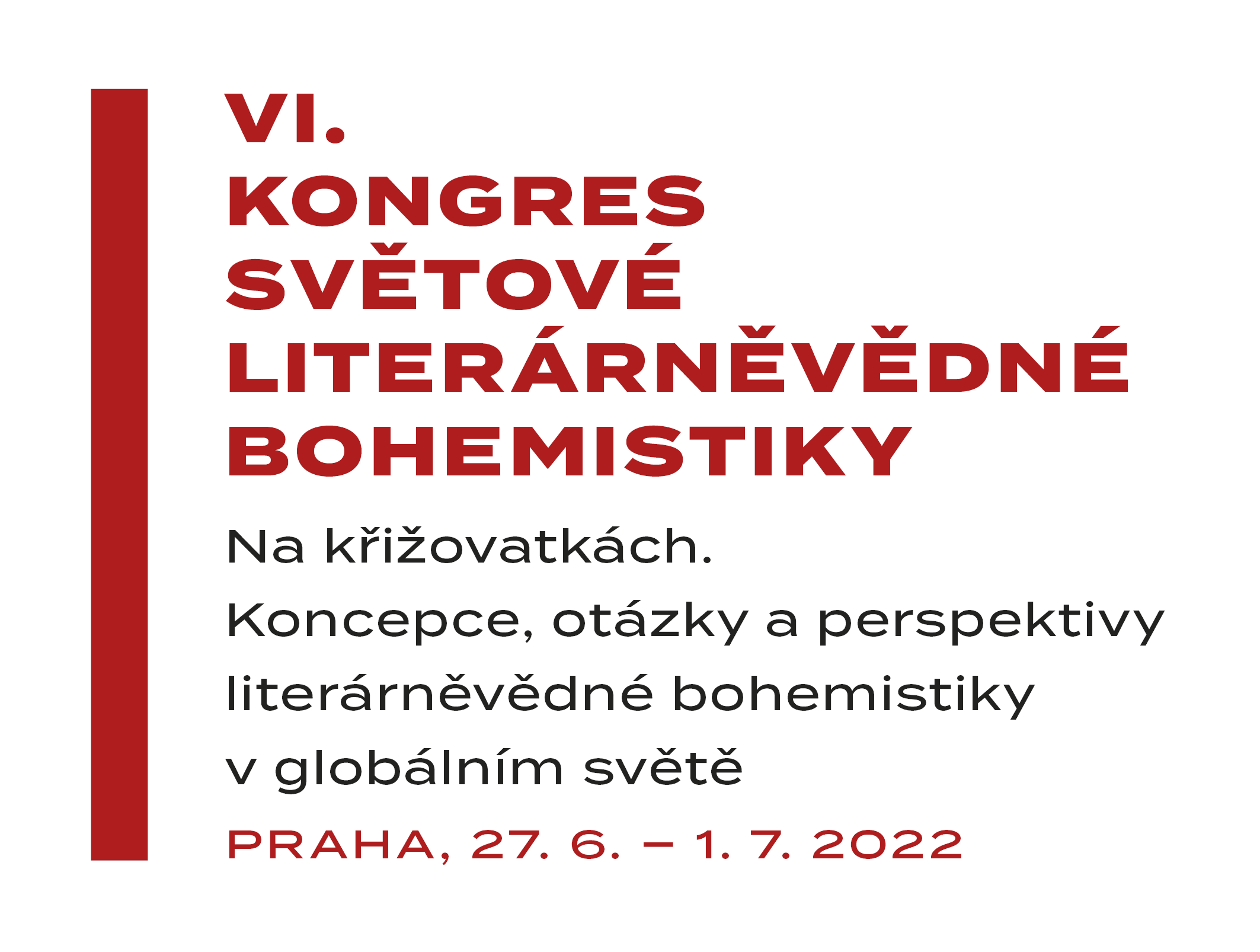Veškerý obsah časopisu je publikován pod licencí CC BY-NC-ND 4.0 Mezinárodní. Plný text licenčních podmínek
Studie / Studies
Eva Krásová [Filozofická fakulta Univerzity Karlovy; This email address is being protected from spambots. You need JavaScript enabled to view it.]
Za vědu o vývoji
Jan Mukařovský a Antoine Meillet
https://doi.org/10.51305/cl.2021.03.01
Článek zkoumá možný vliv myšlení Antoina Meilleta na Pražský lingvistický kroužek, zejména na Jana Mukařovského. Na základě komparace studií Jana Mukařovského ze 30. let a vybraných děl Antoina Meilleta docházíme ke třem styčným tématům: rétorika nové vědy, sociologické pojetí lingvistiky a především koncept obecné lingvistiky jako vědy o zákonitostech vývoje. Ukazujeme, že sociologické pojetí jazyka, resp. uměleckého díla u Meilleta i Mukařovského vede v poslední instanci k odvolávání se na určitý materiální základ zkoumaných norem. Role tohoto základu je u obou teoretiků komplementem představy zákonitého vývoje vývojových „řad“ a možnosti provozovat o nich obecnou vědu. Připomínáme, že tento důraz na slučitelnost diachronního a synchronního hlediska je odlišný od doktríny Kurzu obecné lingvistiky a spekulujeme, že mohl figurovat jako společné téma „pražského“ a „pařížského“ strukturalismu.
Towards a science of development:
Jan Mukařovský and Antoine Meillet
This article examines the possible influence of Antoine Meillet’s thinking on the Prague Linguistic Circle, especially on Jan Mukařovský. Based on a comparison of Jan Mukařovský’s studies from the 1930s and selected works by Antoine Meillet, we find three intersecting topics: the rhetoric of the new science, the sociological conception of linguistics and in particular the concept of general linguistics as a science of the laws of development. We show that Meillet’s and Mukařovský’s sociological conception of language and artwork leads in the final instance to a reference to a certain material basis for the norms under examination. In the case of both theorists, the role of this basis is complementary to the idea of the law-based development of developmental “series” and the possibility of pursuing a general discipline concerning them. We note that this emphasis on the compatibility of diachronic and synchronic perspectives is distinct from the doctrine in the Course in General Linguistics and speculate that it may have figured as a common theme in “Prague” and “Paris” structuralism.
Jiří Jelínek [Univerzita Hradec Králové; This email address is being protected from spambots. You need JavaScript enabled to view it.]
O konstruktivistce a esencialistovi
Ke stylu a motivům dvou reinterpretací mýtu o Libuši
https://doi.org/10.51305/cl.2021.03.02
Cílem příspěvku je ukázat, jak se dva současní čeští postmoderní spisovatelé vyrovnávají s fiktivním převyprávěním mýtu o kněžně Libuši. Pole a palisáda (2006) Miloše Urbana přináší tradiční pojetí příběhu. Vilma Kadlečková napsala svou povídku O snovačce a přemyslovi (2007 a 2015) jako přímou odpověď na Urbanovu adaptaci a nabízí zcela odlišný přístup, zasazuje příběh do budoucnosti a obrací mnohé jeho prvků. Rozdíly mezi oběma texty se projevují v různých oblastech: v pojetí nejistoty, v roli přírody, ve využití číselné a barevné symboliky a v přístupu k problematice genderu a sexuality.
The Constructivist and the Essentialist
The style and motifs of two reinterpretations of the Libuše myth
This paper aims to show how two contemporary Czech postmodern writers deal with the fictional renarration of the Libuše myth. Pole a palisáda (The Field and the Palisade, 2006) by Miloš Urban brings forth a traditional conception of the story of the princess who found herself a husband; however, the novella also uses some present-day writing techniques. Vilma Kadlečková wrote her story O snovačce a přemyslovi (The Weaver and the Premeditator, 2007 and 2015) as an answer to Urban’s adaptation and offers a completely different approach, setting the story in the near future and reversing many of its elements. Whereas Urban’s text is essentialist in nature, using ideas such as the rigid positions of the genders and an anthropocentric view of nature as its cornerstones, Kadlečková presents a work of fiction rooted in the postmodern and poststructuralist notion of social constructivism — her novella works with the idea of reality being shaped by what society believes in.
Martin Markoš [Univerzita Hradec Králové; This email address is being protected from spambots. You need JavaScript enabled to view it.]
Preferované rodinné vztahy a jejich nesamozřejmost v prózách Jana Balabána
https://doi.org/10.51305/cl.2021.03.03
Příspěvek se zabývá prozaickou tvorbou J. Balabána. Zaměřuje se na rozpor mezi představami o rodině a „realitou“ fikčního světa, která těmto představám neodpovídá.
Metodologicky příspěvek vychází z antropologie literatury, zejména z pojetí W. Isera (literatura jako médium umožňující jinak nepřístupnou antropologickou zkušenost), ale zohledňuje také sociologické teorie Z. Baumana a A. Giddense.
Balabánova díla zdánlivě předestírají idealizovaný model reality, o nějž je třeba usilovat, lze však konstatovat, že cesty k němu jsou zároveň zpochybňovány. Nenabízí se ideál jako iluze, ale vztah ideálního a neideálního, na který poukazují také neustálé sebereflexe postav, které se pokoušejí čelit neúplnosti prožívané reality fikčního světa prostřednictvím jazykových praktik a ritualizovaného jednání.
Preferred family relationships and how they are not to be taken for granted in the prose works of Jan Balabán
This paper deals with the prose works of Jan Balabán. It focuses mainly on the contradictions between idealized notions of the family and relationships within it and the “reality” of the fictional world, which does not match these ideas.
The methodological contribution is based on anthropological literature, mainly regarding Wolfgang Iser’s idea (literature as a medium which facilitates anthropological experience that is otherwise unattainable), but also considers the sociological theories of Zygmunt Bauman involving liquid modernity and the fixed and pure relationships of Anthony Giddens.
At first glance, it would appear that Balabán’s work presents the reader with an ideal which one should strive to achieve. Upon closer inspection, however, it can be stated that Balabán is never truly literal, and that he immediately questions every path towards reconciliation. He does not offer us the ideal as an illusion, but rather the relationship of the ideal with the non-ideal, which the constant self-reflection and questioning of the characters suggest. The characters experience the incompleteness of the experienced reality of the world, and they attempt to face it via language practice and ritualized actions.
Rozhledy / Horizons
Bohumil Fořt [Ústav pro českou literaturu AV ČR; This email address is being protected from spambots. You need JavaScript enabled to view it.]
Realistická literární postava: (kognitivní) výzva, či nikoli?
https://doi.org/10.51305/cl.2021.03.04
Studie je pokusem o kritické zhodnocení přínosu kognitivisticky orientované teorie literatury pro výzkum v oblasti literární postavy obecně a realistické literární postavy konkrétně. Na základě kognitivistických příspěvků ke zkoumání literárních postav nahlíží postavy realistické fikce, aby ukázala validitu těchto příspěvků pro jejich detailní průzkum v porovnání s tradičními koncepty vzniklými mimo tuto oblast. Tato analýza ukazuje, že kognitivistické přístupy jsou přínosné jednak v souvislosti s uchopením mentálních aspektů subjektů literární komunikace, tedy autorů, čtenářů a jejich abstraktních protějšků vytvořených pro účely detailnější analýzy literárních děl, a jednak s průzkumem mentálního fungování realistických literárních postav. Zdá se nicméně, že použití těchto přístupů je výrazně omezeno tam, kde se soustředíme na realistické literární postavy jako na složité sémantické konglomeráty s výraznými sociálními rozměry.
The Realist literary character: a (cognitive) challenge or not?
This study is an attempt to critically evaluate the contribution made by cognitive literary theory to research into literary characters in general and Realist literary characters in particular. Based on cognitive contributions to research into literary characters, it examines the characters in Realist fiction to demonstrate the validity of these contributions due to their detailed research in comparison with traditional concepts that have emerged outside that sphere. This analysis indicates that cognitive approaches are of benefit both in connection with grasping the mental aspects of the subjects of literary communication, i.e. the authors, the readers and their abstract counterparts created for purposes of more detailed analysis of literary works, and in connection with research into the mental functions of Realist literary characters. Nevertheless, the employment of these approaches appears to be limited to a large extent when we focus upon Realist literary characters as complex semantic conglomerates with prominent social dimensions.
Recenze / Reviews
Nová syntéza středověké knižní kultury
Michal Dragoun — Jindřich Marek — Kamil Boldan — Milada Studničková: Knižní kultura českého středověku — JAN MALURA
Hirohito Shibata — Kengo Omura: Why Digital Displays Cannot Replace Paper. The Cognitive Science of Media for Reading and Writing – JIŘÍ TRÁVNÍČEK
Varování před ztracením se v překladu (a bibliografii)
Joanna Goszczyńska – Jaromír Kubíček – Tomáš Kubíček: Česká literatura v polských překladech (1989-2020) / Literatura czeska w tłumaczeniach polskich (1989–2020) – ANNA GNOT
Švejkem k dějinám české literatury
Piotr Gierowski: Superhero Josef Švejk – JOANNA DERDOWSKA
Poctivý a potřebný návrat k Hálkovi
Vítězslav Hálek: Básně a prózy – IVO ŘÍHA
Kronika / Chronicle
Studentská literárněvědná konference 2021 — TEREZA ROHÁČOVÁ
Zpráva o konferenci Svatá Ludmila — Ženy v christianizaci střední Evropy — VENDULA REJZLOVÁ





